Did you know that service dogs can reduce PTSD symptoms in veterans by up to 82%, according to a Purdue University study? That’s not just comforting—that’s transformative. Behind every lowered heart rate and interrupted nightmare is a four-legged companion with an extraordinary gift for emotional intuition.
In today’s high-stress world, more people are discovering the life-changing support of therapy dogs. These incredible animals don’t just offer snuggles—they provide structure, safety, and a sense of calm that medication alone often can’t. Whether it’s grounding someone during a flashback or waking them from night terrors, the right dog can be a lifeline.
Of course, not all breeds of dogs are naturally suited for this critical role. Just as hypoallergenic dog breeds bring relief to allergy sufferers, certain breeds are uniquely gifted at supporting those with PTSD. This article will help you to explore which therapy dog breeds offer not just loyalty, but life-changing emotional support, with paws, patience, and a powerful sense of purpose.
Best Therapy Dog Breeds For PTSD
1. Golden Retriever

According to PetMD, the Golden Retrievers are often considered one of the best therapy dog breeds for PTSD, and it’s easy to see why. Their calm temperament, deep loyalty, and eagerness to please make them ideal for individuals managing post-traumatic stress disorder.
These dogs excel at forming emotional bonds and picking up on subtle shifts in mood, making them incredibly effective emotional support pets. Their gentle presence helps reduce anxiety and provides daily comfort for those living with traumatic stress disorder.

Golden Retrievers are not just loving—they’re also smart. With consistent service dog training, they learn to complete tasks such as grounding their handler during anxiety attacks or providing deep pressure therapy during emotional distress.
Their laid-back nature and patience make them well-suited for psychiatric service dog work. Whether in crowded public spaces or calm home environments, they stay composed and attentive.
Loved by families and professionals alike, Golden Retrievers represent what makes particular breeds great service animals: intuition, empathy, and reliability. For people seeking a steady, affectionate, supportive animal, this breed offers lifelong companionship and care.
2. Labrador Retriever
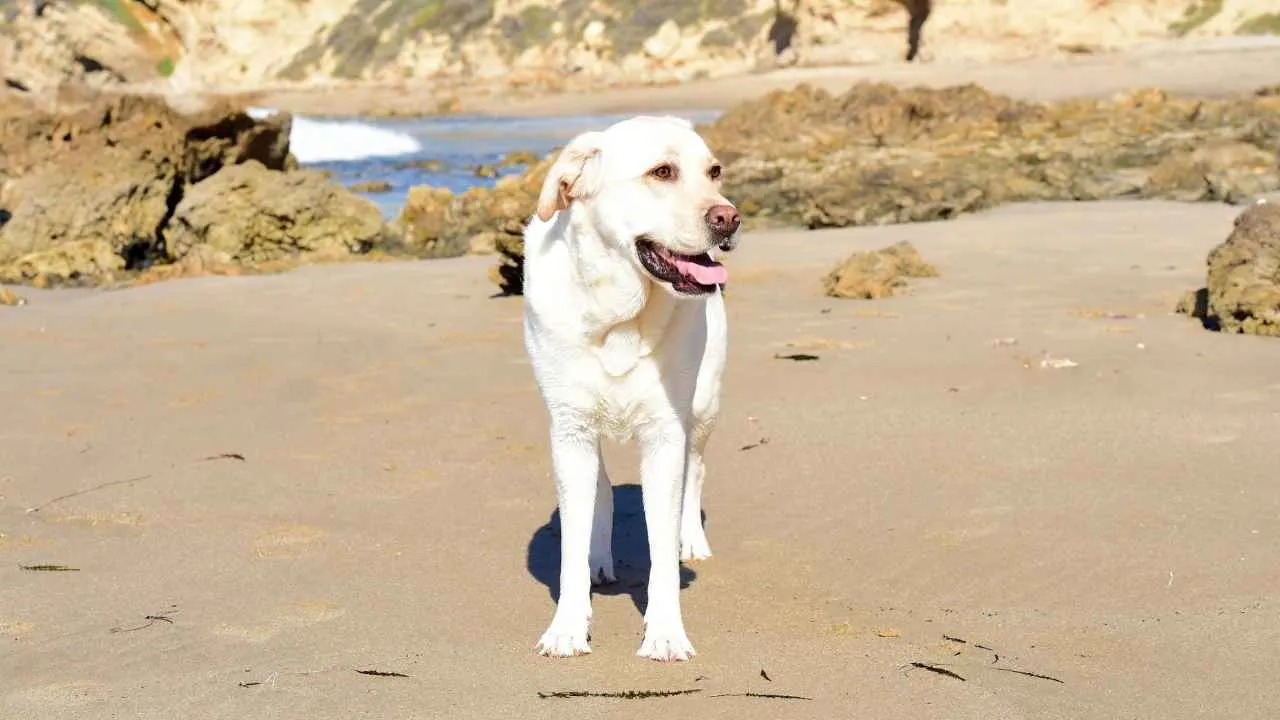
Labrador Retrievers consistently rank among the best therapy dog breeds for PTSD—and for good reason. Their friendly demeanor, intelligence, and eagerness to help make them one of the most reliable service dog breeds. Labs are incredibly attuned to human emotions, which makes them exceptional emotional support dogs.
Whether aiding veterans or supporting individuals with traumatic stress disorder, this breed excels in various types of service dog work. Labs can be trained to complete tasks like waking someone from a nightmare, creating space in crowded areas, or grounding their handler during anxiety attacks. With proper service dog training, they become calm, confident companions.
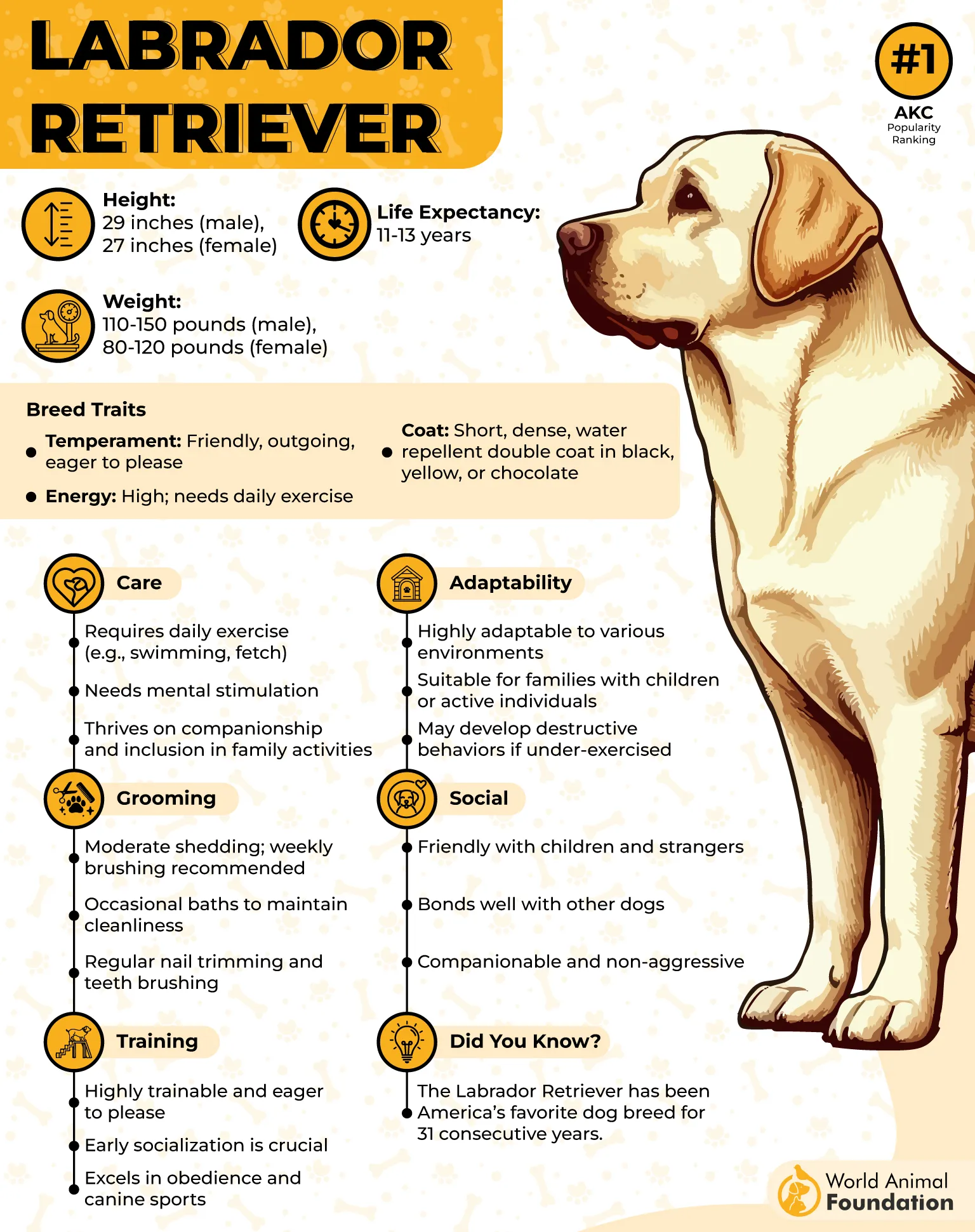
These assistance dogs thrive on affirmative reinforcement and are quick learners, which is crucial for fulfilling the needs of people dealing with psychological disorders. Their stable temperament allows them to remain focused even in stressful environments, making them great emotional support dogs.
Labradors also adapt well to home life. They bond deeply with household members and get along well with other dogs. Their caring nature and consistent behavior bring comfort and stability to those facing psychological challenges.
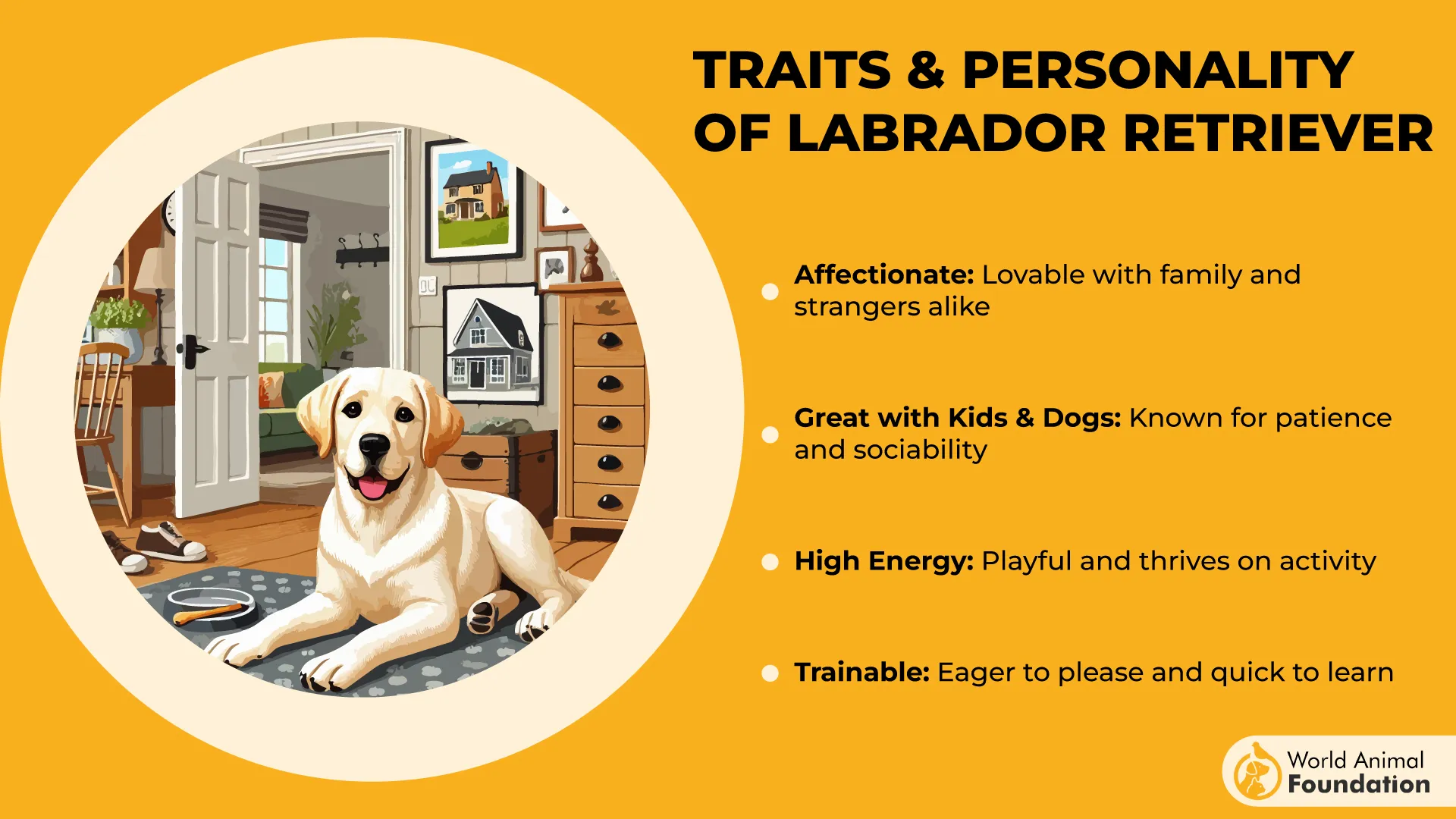
From basic obedience to complex service tasks, the Labrador Retriever’s versatility and dedication have earned them a place among the most common breeds used as PTSD service dogs. They’re not just popular breeds—they’re trusted.
3. German Shepherd
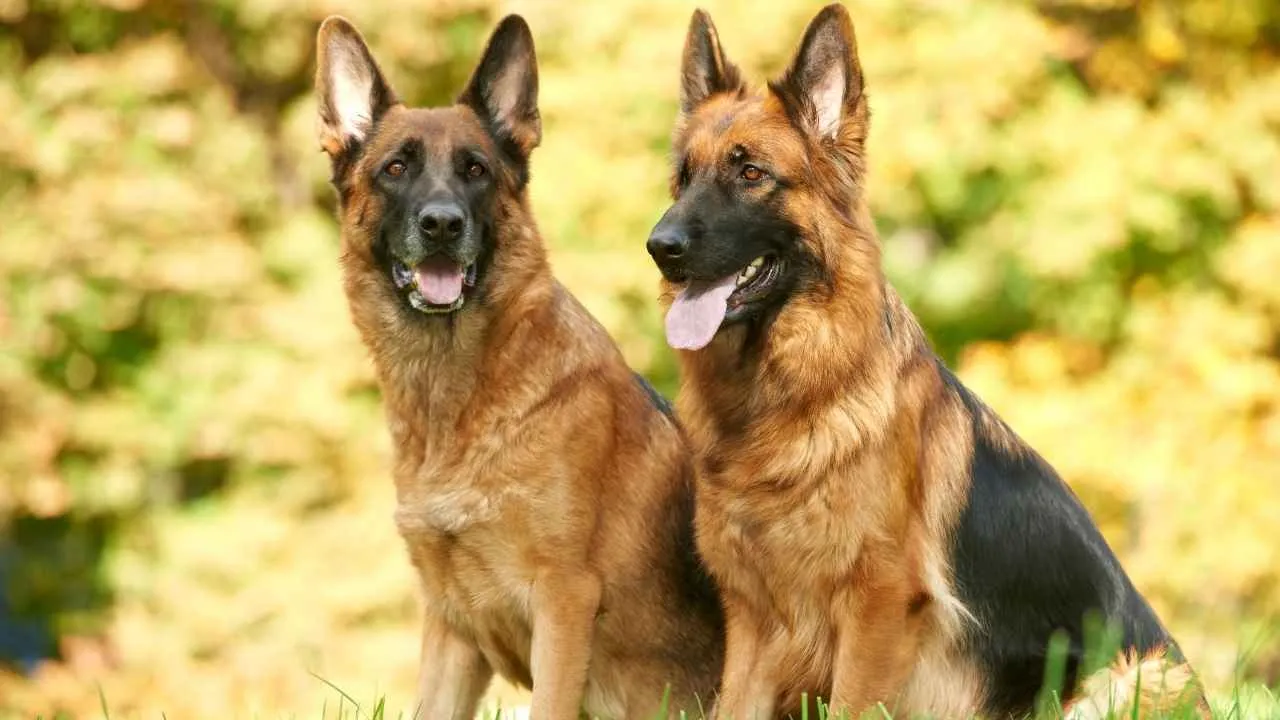
German Shepherds are one of the most respected and dependable PTSD service dogs, known for their unmatched loyalty and intelligence. Their strong work ethic and sharp instincts make them one of the best service dog breeds for individuals navigating post-traumatic stress disorder.
Originally bred as hunting dogs and later trained as guide dogs, German Shepherds have evolved into powerful emotional support pets. Their ability to complete particular tasks, such as detecting signs of distress or providing pressure-based therapy, makes them ideal for people facing traumatic stress disorder PTSD.

With regular training, these big dogs can be remarkably focused and obedient. They respond well to structure and are often chosen for service dog work due to their ability to stay calm under pressure. Their protective yet composed nature helps individuals feel safe and grounded in unpredictable environments.
Despite their strength and presence, German Shepherds form deep emotional bonds with their owners. They are incredibly attuned to mental health needs, often anticipating a handler’s emotions before they’re spoken.
When it comes to assistance dogs that balance intelligence, devotion, and sensitivity, German Shepherds stand out. They’re not just working dogs—they’re life-changing companions.
4. Poodle
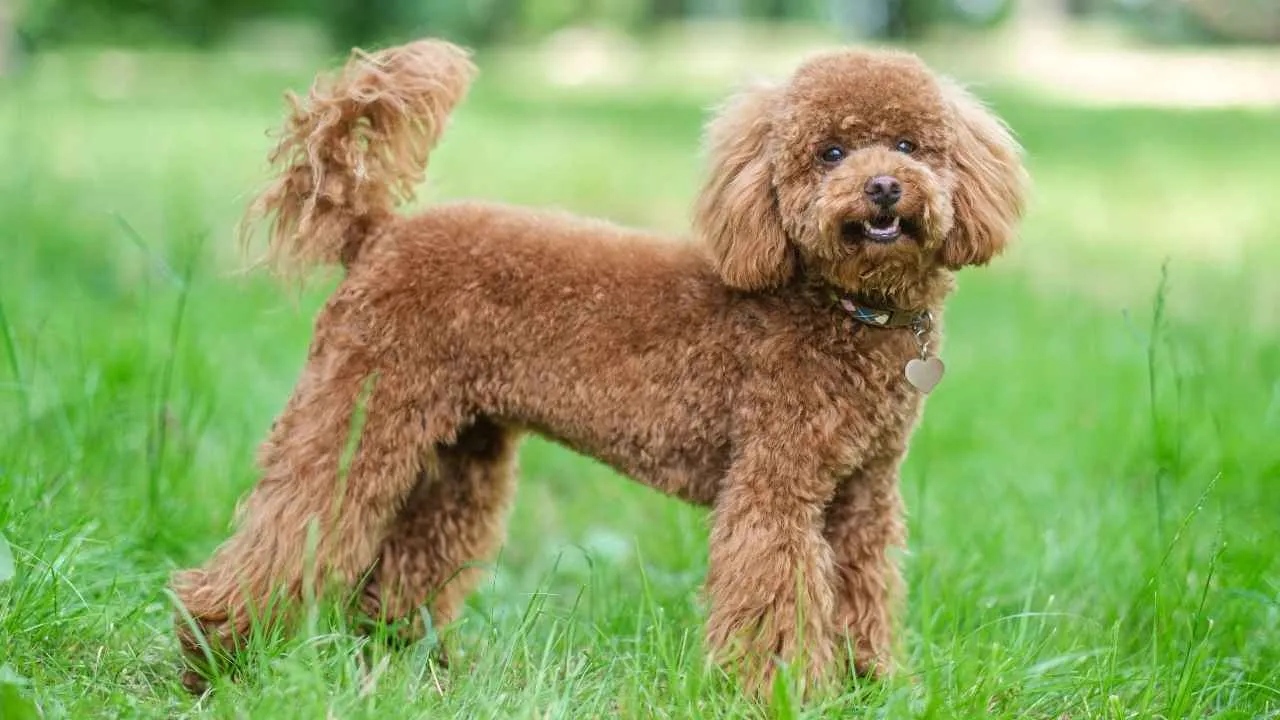
Poodles are often underestimated as therapy dogs, but they’re actually one of the best service dog breeds for PTSD. Their intelligence is off the charts, which means they pick up on service dog training quickly, perfect for performing tasks that support individuals with post-traumatic stress disorder.
What sets Poodles apart is their versatility. Available in standard, miniature, and toy sizes, they can fit into different lifestyles while still being effective emotional support animals. Standard Poodles, in particular, make great emotional support dogs thanks to their gentle temperament and trainability.
This breed’s hypoallergenic coat is another advantage, especially for those with sensitivities, making them one of the most accessible assistance animals. Their ability to adapt to various environments is a huge plus for individuals suffering from psychiatric disorders or anxiety.
Poodles excel at recognizing emotional shifts, responding with behaviors that reduce PTSD symptoms like panic attacks or emotional flashbacks. Their gentle, composed demeanor creates a steadying presence for those in need.
Smart, sensitive, and reliable, Poodles are not just stylish—they’re supportive, capable, and deeply attuned to psychological challenges.
5. Bernese Mountain Dog

The Bernese Mountain Dog might be best known for its size and striking coat, but beneath that fluffy exterior lies one of the best therapy dog breeds for PTSD. These gentle giants possess a calm disposition that’s ideal for service work, especially when aiding individuals suffering from traumatic stress disorder.
Despite their large dog status, Bernese Mountain Dogs are incredibly patient and loving. They bond closely with their handlers and offer a grounding presence, making them exceptional emotional support animals. Their steady energy is especially helpful for individuals dealing with psychiatric service dog needs.
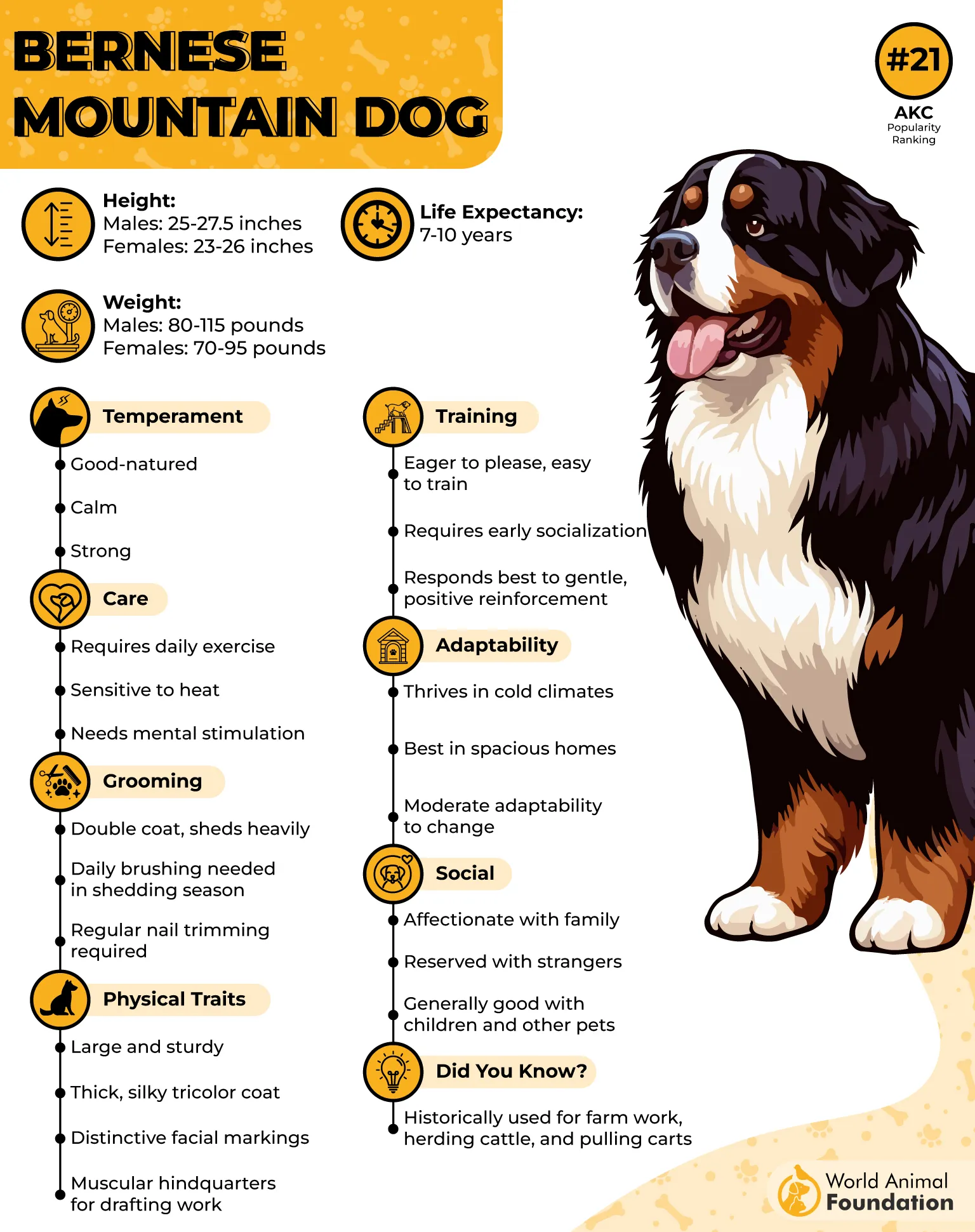
Known for their affectionate nature, they respond well to positive reinforcement and thrive with proper training. These assistance dogs are often selected for complete tasks like pressure-based therapy or blocking during moments of distress.
Though they’re not as commonly used as other breeds, Bernese Mountain Dogs prove that not all dogs need to be high-energy to be great service animals. Their quiet confidence and emotional intelligence set them apart.
For anyone seeking an extremely loyal animal with a heart as big as its frame, the Bernese is a powerful and comforting companion.
6. Boxer

According to Britannica, Boxers are energetic, affectionate, and surprisingly well-suited for PTSD service dog work. While often seen as playful family members, they’re also one of the best therapy dog breeds for PTSD, thanks to their protective instincts and deep loyalty.
Their strong bond with their owner makes them highly responsive to emotional shifts, helping those with post-traumatic stress disorder feel secure and grounded. Boxers are especially effective for people who need a psychiatric service dog that can stay alert and physically present during moments of distress.
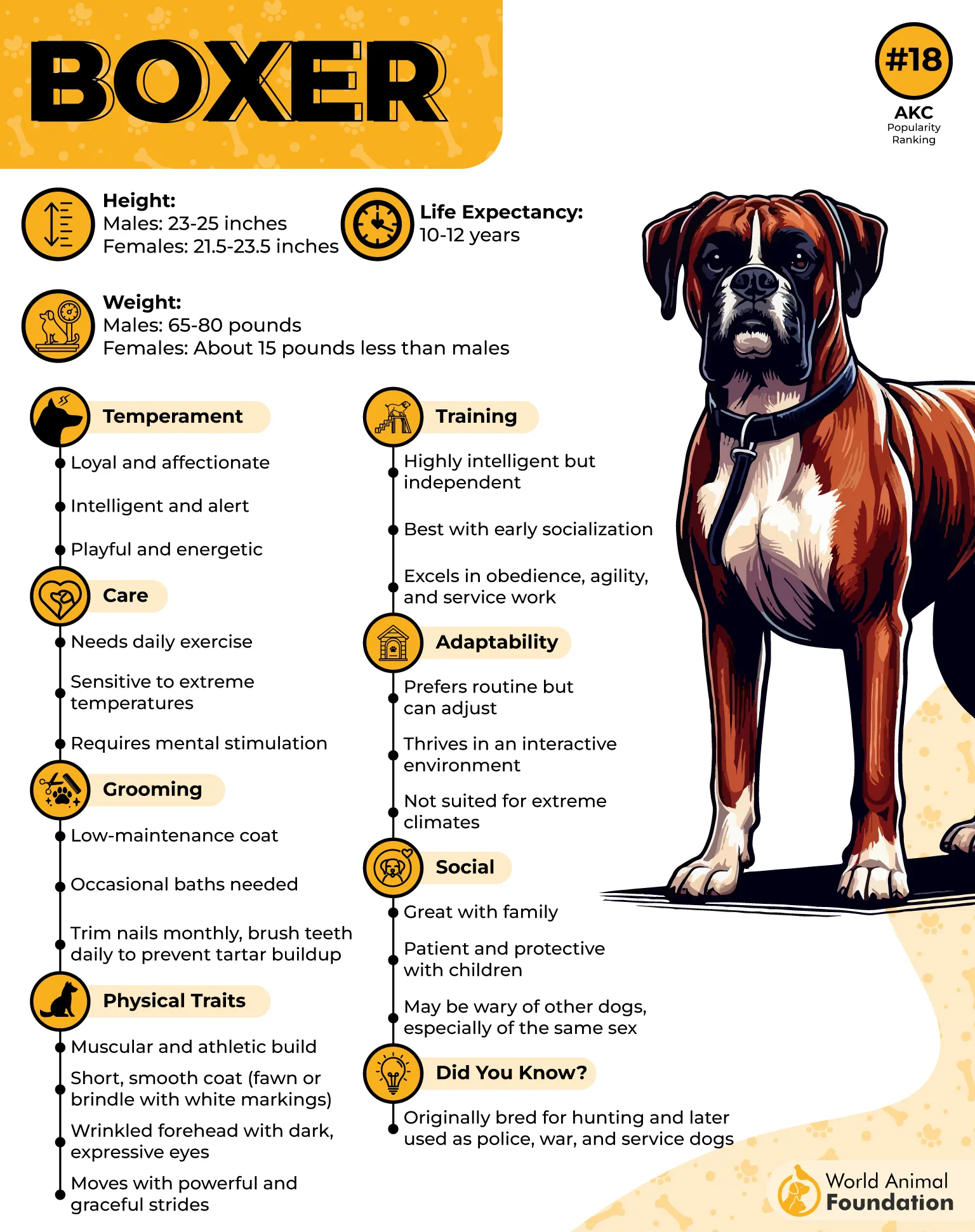
These dogs excel with proper training and structure. With the right guidance, they can complete tasks such as alerting to anxiety cues or creating space in social settings. Their focus and drive make them one of the more underrated service dog breeds.
Despite their strength, Boxers are incredibly gentle with individuals suffering from psychological challenges. Their blend of physical power and emotional sensitivity creates a balanced support animal.
For those who want a loyal companion with a bit of spirited energy, Boxers bring both fun and serious emotional support to the table.
7. Border Collie
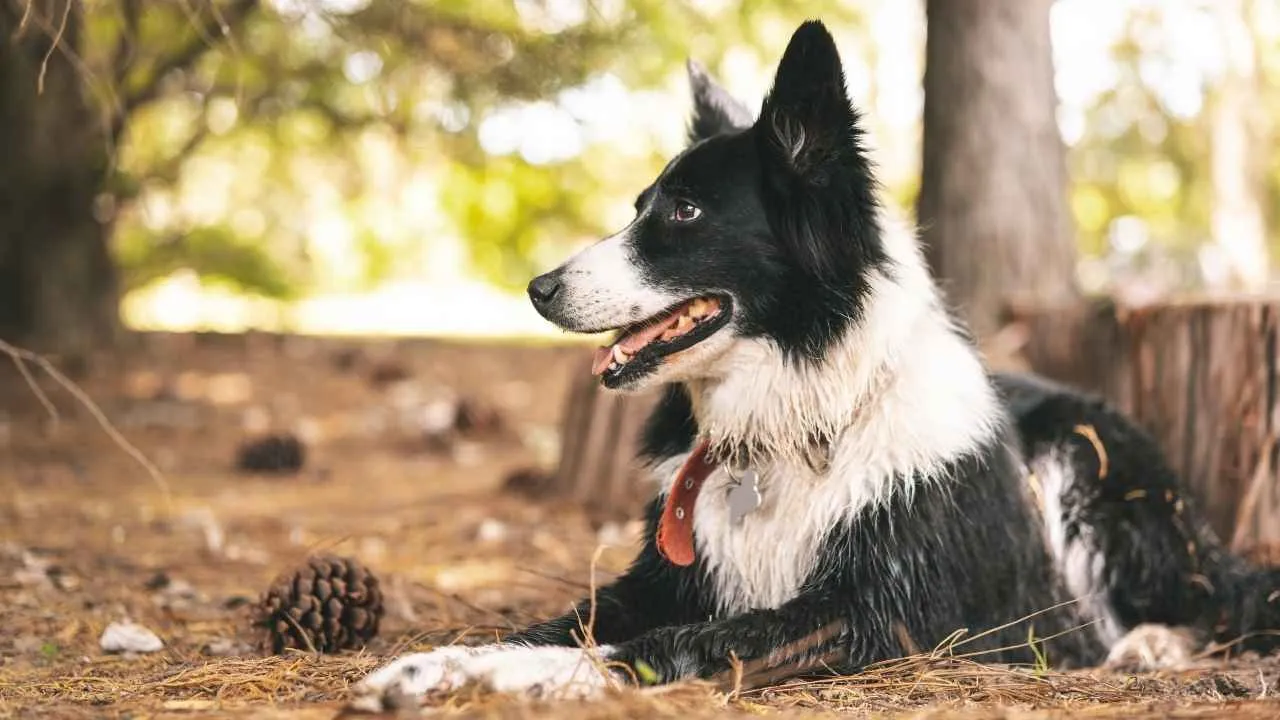
Widely known as one of the most intelligent dog breeds, Border Collies are excellent psychiatric service dogs when matched with the right handler. Their high trainability and focus make them a great breed for managing post-traumatic stress disorder through targeted service work.
Border Collies thrive on mental stimulation and meaningful tasks. With proper service dog training, they can learn to perform specific tasks like retrieving medication, guiding their handler out of crowded areas, or interrupting panic episodes, crucial for individuals managing PTSD symptoms.
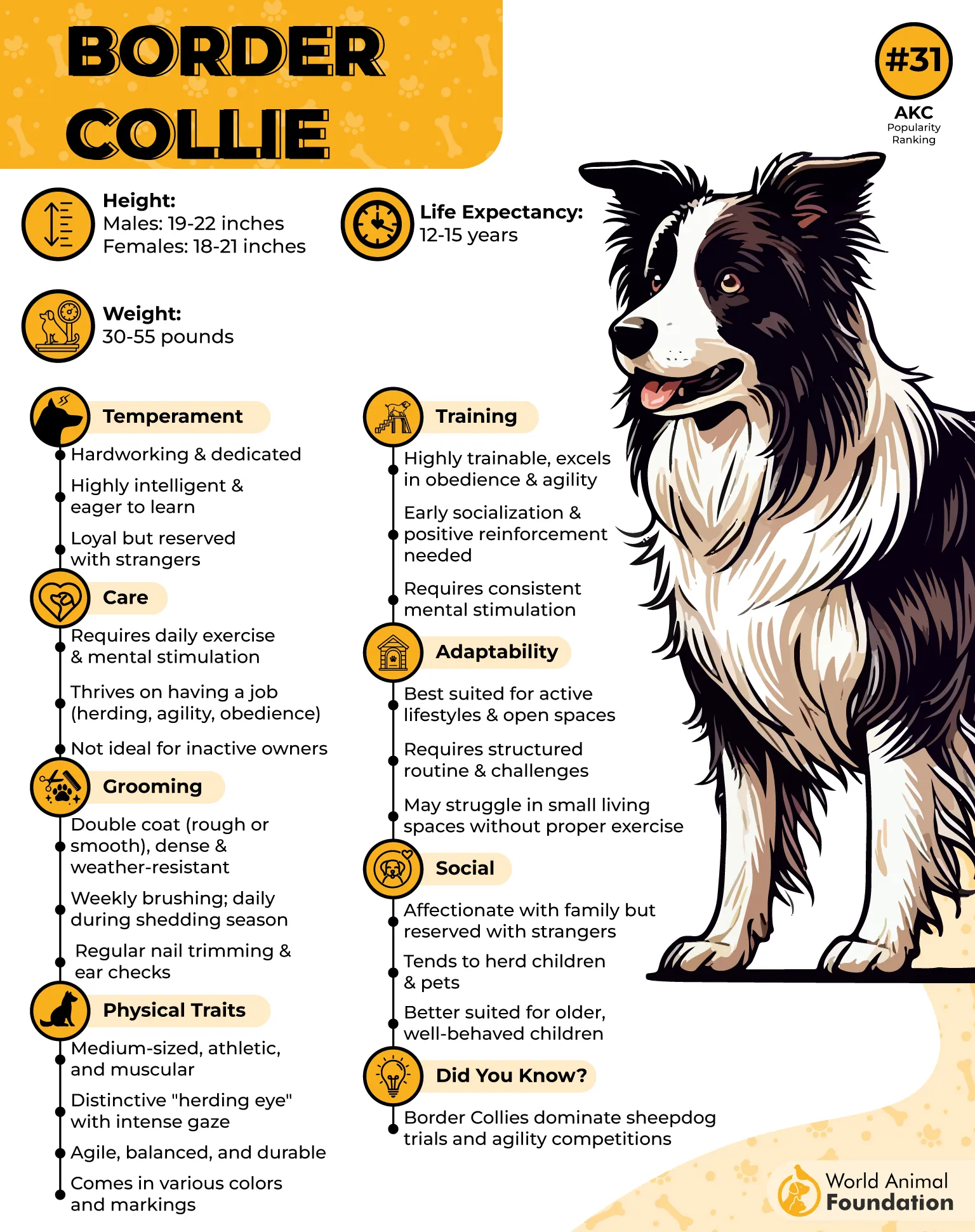
This breed’s alertness and sensitivity to body language also make them outstanding emotional support animals. They often anticipate their handler’s needs before being commanded, creating a strong sense of safety and connection.
While they may not be as calm as other breeds, Border Collies compensate with their ability to stay engaged and attentive. Their energy is best suited for people who enjoy an active lifestyle and want a dog that can keep up.
As assistance dogs, Border Collies offer intelligence, loyalty, and a willingness to help that goes beyond expectations.
8. Cavalier King Charles Spaniel

Don’t let their size fool you—Cavalier King Charles Spaniels are among the best comfort dog breeds for PTSD. These small dogs are big on heart and emotional sensitivity, making them perfect companions for people facing post-traumatic stress disorder.
Their gentle temperament and loving nature make them ideal emotional aid animals. Cavaliers naturally gravitate toward people, often curling up in laps or staying close during moments of distress—an instinct that supports deep emotional bonding and stability.
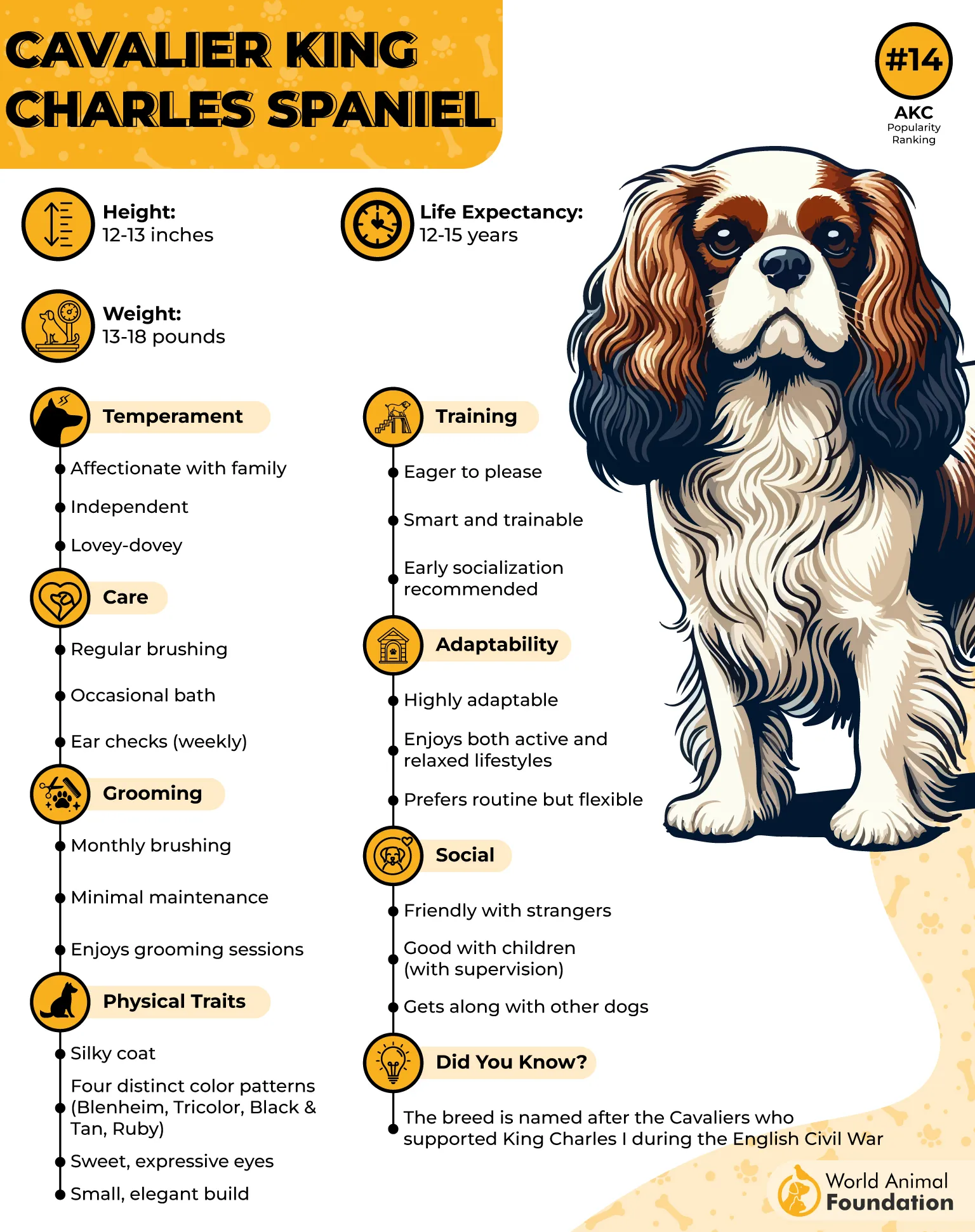
Though not commonly seen among service dog breeds, their ability to detect emotional changes and provide quiet reassurance makes them valuable animals. They may not perform complex tasks, but they excel at offering comfort and preventing panic episodes.
Thanks to their small size, Cavaliers fit easily into apartments or travel settings, giving people suffering from mental stability challenges a reliable partner wherever they go. With consistent, gentle dog training, they thrive as psychiatric companions.
For those seeking a nurturing, affectionate dog with a calm disposition, the Cavalier is a soothing presence in a tiny, tail-wagging package.
9. Great Dane
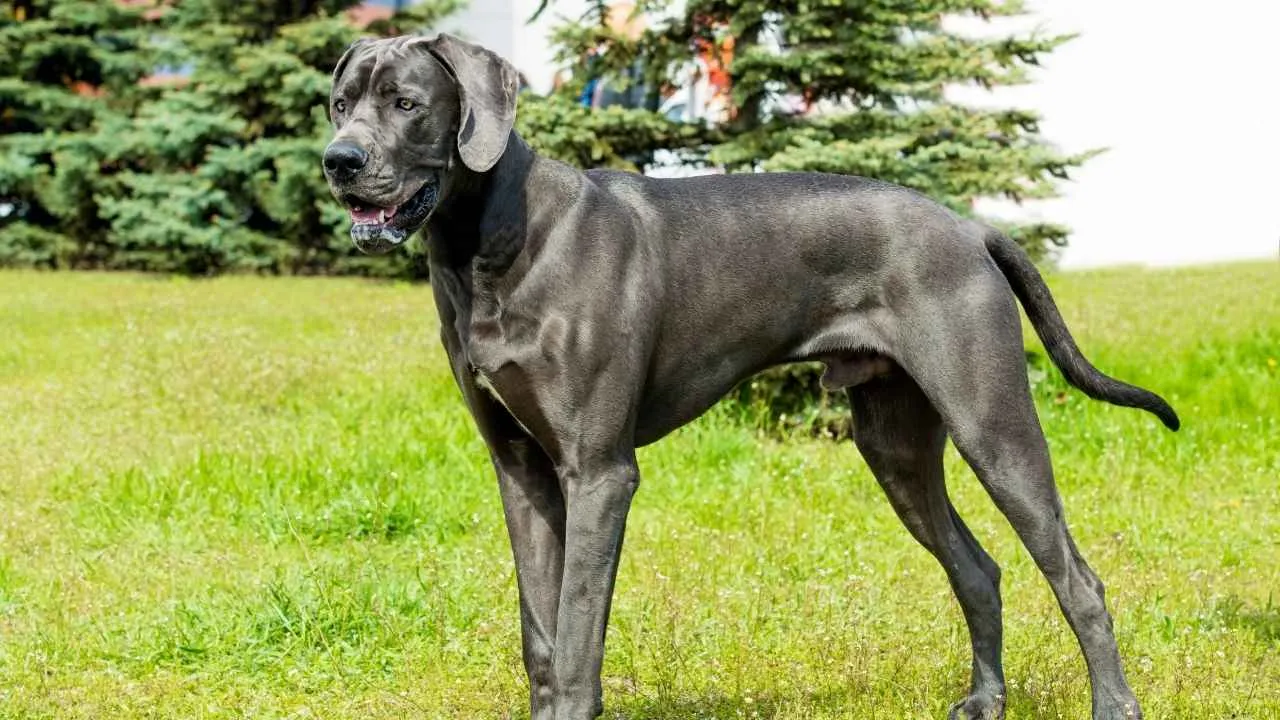
With their towering height and gentle personality, Great Danes are truly gentle giants—and surprisingly, one of the best comfort dog breeds for PTSD. Despite their intimidating appearance, they are known for their affectionate demeanor and calm disposition, as per the AKC.
Their size is an advantage when completing tasks like deep pressure therapy or blocking in crowded spaces, which helps individuals suffering from traumatic stress disorder regain a sense of control and safety. When properly trained, they become exceptional PTSD service dogs.
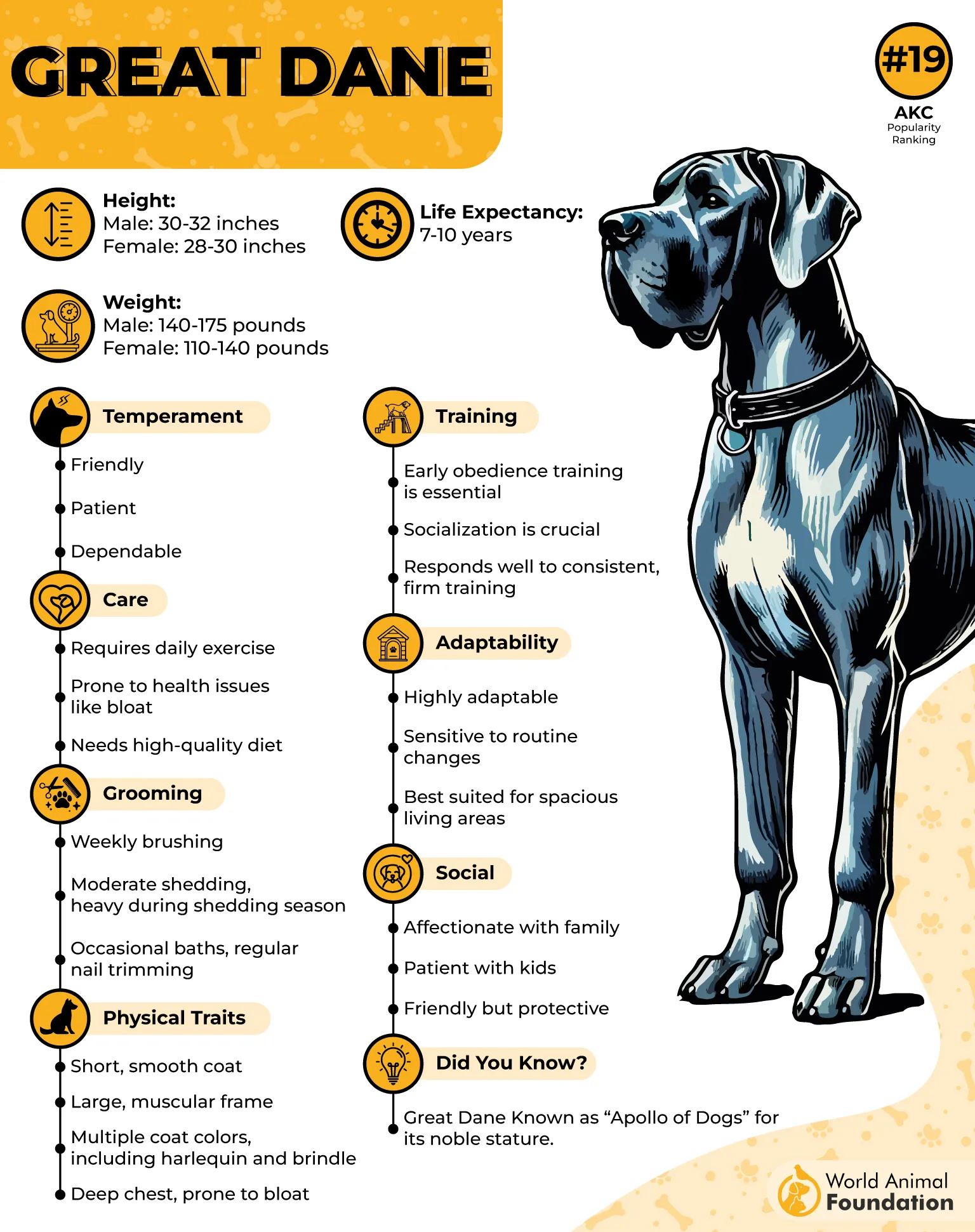
These dogs bond closely with their handlers and are incredibly attuned to emotional shifts. They may not move quickly, but they stay steady and supportive in stressful moments, which is crucial for psychiatric service dog roles.
Danes require obedience and consistent dog training due to their size, but their easygoing nature makes the process smooth with positive reinforcement. They are great service dogs for those who prefer a calm, observant companion.
For individuals facing anxiety and mental health challenges, Great Danes offer strength, support, and a gentle, reassuring presence that’s impossible to ignore.
Conclusion
When it comes to the best therapy dog breeds for PTSD, there’s no one-size-fits-all answer—just a heart-to-heart connection waiting to happen.
From the gentle strength of the Great Dane to the playful intuition of the Boxer, each breed we explored brings its own special kind of healing power to the table (or the couch, let’s be honest).
Whether you’re drawn to the unwavering loyalty of German Shepherds, the comforting snuggles of a Cavalier King Charles Spaniel, or the energetic focus of a Border Collie, these dogs don’t just offer companionship—they offer emotional support, grounding, and a reminder that you’re never alone.
PTSD service dogs aren’t just helpers; they’re partners in resilience. They learn, they respond, and they love without condition. That’s the beauty of choosing the right support animal—it’s not just about training, it’s about trust.
If one of these breeds sparked something in you, maybe it’s time to take the next step. After all, the road to healing is better traveled with four paws and a wagging tail. Because sometimes, the best kind of therapy doesn’t come from words—it comes from a wet nose and a warm heart.


